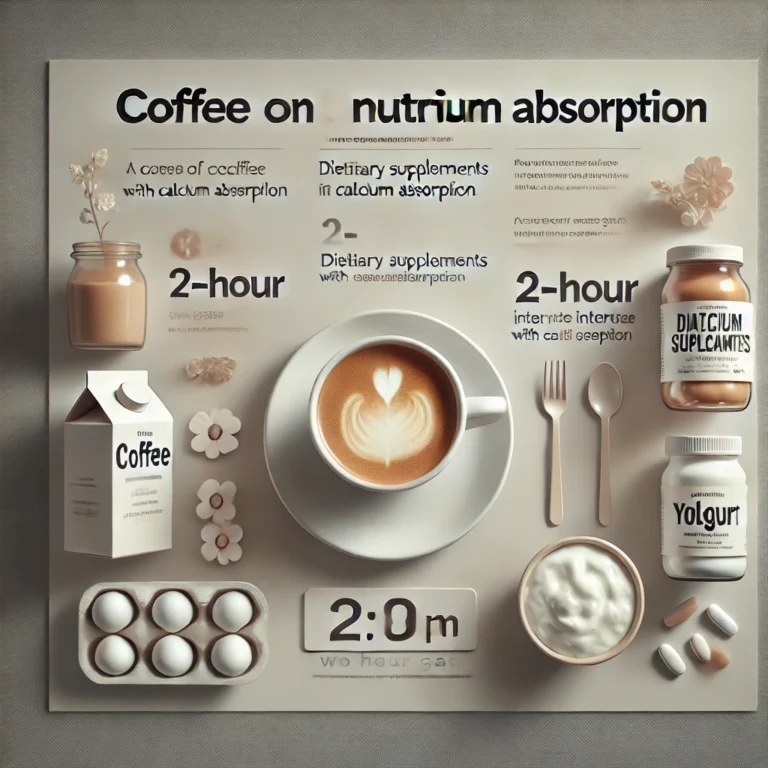*This post may contain affiliate links for which I earn commissions.*
It’s that afternoon slump that leaves you feeling like you could nap at your desk. This could be more than just a sign of needing more sleep; it might mean you’re consuming too much sugar. When you eat sugary foods, your blood sugar levels spike rapidly, giving you a quick burst of energy. But what goes up must come down, and this leads to a rapid crash, leaving you more tired than before. Not only you feel drained drained by mid-afternoon, but you are battling mood swings, and constantly craving sweets? You might be dealing with sugar fatigue, a cycle of energy spikes and crashes created by excessive sugar intake. This condition doesn’t just sap your physical energy; it can seriously affect your emotional well being too. Recognizing the signs is the first step, but understanding the underlying mechanisms can lead to lasting change. What if you could reclaim your energy and stabilize your mood without sacrificing your favorite treats?
Understanding Sugar Fatigue

Sugar fatigue hits when your body can’t keep up with the constant influx of sugary foods, leaving you feeling drained and craving more. It’s a vicious cycle that can sneak up on you. You indulge in that sweet treat, and for a moment, you feel a rush of energy. But soon after, the crash hits, and your energy plummets. This pattern isn’t just a temporary inconvenience; it can lead to long-term fatigue and unhealthy eating habits.
Understanding sugar fatigue means recognizing how your body processes sugar. When you consume high amounts of sugar, your blood sugar levels spike rapidly. Your pancreas responds by releasing insulin to bring those levels down. This rollercoaster effect can leave you feeling exhausted and irritable.
To combat sugar fatigue, it’s important to stabilize your blood sugar. Focus on whole, nutrient-dense foods that provide lasting energy. Incorporate proteins, healthy fats, and fiber into your meals. By doing this, you’ll keep your energy levels steady and reduce those intense cravings.Take control of your diet and break free from the cycle of sugar fatigue. You deserve to feel energized and vibrant!
Common Symptoms to Recognize
Feeling constantly fatigued or experiencing sudden mood swings are key symptoms that signal you might be struggling with sugar fatigue. You may notice that your energy levels drop sharply after a sugary snack, leaving you feeling drained instead of revitalized. If you find yourself reaching for more sugar to combat this tiredness, it’s a vicious cycle that can leave you feeling worse.
Another common symptom is irritability. When your blood sugar levels fluctuate, your mood can swing from calm to frustrated in a heartbeat. You might feel anxious or restless, especially when you haven’t had your “fix.”
Cravings for sugary snacks can also be a telltale sign. You may feel an overwhelming desire for sweets, often mistaking it for hunger. If you’re frequently battling these cravings, it’s crucial to recognize this as a symptom of sugar fatigue.
Lastly, trouble focusing or experiencing brain fog can hinder your productivity. If you’re struggling to concentrate, it’s time to evaluate your sugar intake. Recognizing these symptoms is the first step toward regaining control over your energy levels and overall well-being.
The Science Behind Sugar Cravings
Understanding why you crave sweets can shed light on the cycle of energy spikes and crashes that lead to fatigue and irritability. Sugar cravings often stem from various biological and psychological factors that manipulate your body’s energy levels and mood. Here are some reasons behind those sweet-tooth temptations:
- Blood Sugar Levels: When your blood sugar dips, your body signals a craving for quick energy, often found in sugary snacks.
- Hormonal Fluctuations: Hormones like cortisol can increase cravings during stressful times, pushing you toward comfort foods.
- Emotional Triggers: You might associate sweets with comfort, happiness, or reward, reinforcing the desire for sugar during low moods.
- Gut Health: An imbalance in gut bacteria can lead to increased cravings for sugar as certain bacteria thrive on it.
Recognizing these triggers can empower you to make more informed choices.
Take control of your diet and break free from the cycle of sugar fatigue. You deserve to feel energized and vibrant!
David Wolfe
How Sugar Affects Energy Levels
Often, consuming sugar leads to a quick burst of energy, but it can just as swiftly drop you into a fatigue slump. When you indulge in sugary snacks or drinks, your body rapidly absorbs the sugar, causing a spike in your blood sugar levels. This surge gives you that initial jolt of energy, making you feel alert and ready to tackle your tasks.
However, this high is often short-lived. As your body processes the sugar, insulin kicks in to bring those levels back down, and that’s when you might feel a sudden crash. You may experience tiredness, irritability, and difficulty concentrating—symptoms that can drag your productivity down.
Instead of relying on sugar for energy, consider opting for balanced meals with protein, healthy fats, and complex carbohydrates. These choices provide sustained energy without the rollercoaster effect of sugar.
The Role of Insulin
Insulin plays an essential role in regulating your blood sugar levels, acting as the hormone that helps your body use sugar for energy or store it for later. When you consume sugar, your blood sugar levels rise, prompting your pancreas to release insulin. This hormone then facilitates the uptake of sugar into your cells, preventing your energy levels from spiking and crashing.
However, frequent high sugar intake can lead to insulin resistance, where your cells no longer respond effectively to insulin.
Here’s why understanding insulin’s role is significant:
- Energy Regulation: Insulin guarantees your body efficiently uses sugar for immediate energy.
- Storage Function: It helps store excess sugar in your liver and muscles for future energy needs.
- Impact on Hunger: Fluctuating insulin levels can influence your hunger signals, leading to cravings.
- Long-Term Health: Poor insulin management can contribute to metabolic disorders, including diabetes.
Emotional Effects of Sugar Intake
Consuming sugar can lead to a rollercoaster of emotions, as its immediate energy boost is often followed by a crash that leaves you feeling irritable and fatigued. This cycle isn’t just physical; it impacts your mood considerably. You might notice that after that sugar high, feelings of anxiety or sadness can creep in.
When you reach for another sugary snack to regain that fleeting energy, you’re not just chasing a sugar rush—you’re trying to elevate your mood. Unfortunately, this often results in a vicious cycle where your emotional state becomes tied to your sugar intake. You might find yourself in a constant loop of cravings, frustration, and guilt.
Moreover, the quick satisfaction from sugar can overshadow more profound emotional issues. Instead of addressing what’s bothering you, you might instinctively reach for that chocolate or soda, thinking it’ll make everything better.
Recognizing these emotional effects can empower you to make healthier choices. By substituting sugary snacks with nourishing foods, you can stabilize your mood and enhance your overall emotional well-being. Remember, it’s about feeling good, not just temporarily satisfied.
Long-Term Health Consequences
Excessive sugar intake can lead to serious long-term health consequences, including obesity, diabetes, and heart disease. It’s essential to recognize how your sugar habits may be silently sabotaging your health. When you consume too much sugar, your body struggles to keep up, and over time, this can manifest in various detrimental ways.
Obesity
High sugar consumption contributes to weight gain, making it easier to pack on pounds.
Type 2 Diabetes
High sugar consumption contributes to weight gain, making it easier to pack on pounds.
Heart Disease
Sugar can raise blood pressure and triglycerides, major risk factors for heart issues.
Tooth Decay
Sugary diets are linked to cavities and other dental problems, impacting your overall health.
Taking control of your sugar intake isn’t just about feeling good today; it’s about safeguarding your future. By making conscious choices now, you can steer clear of these serious health issues and enjoy a healthier, more vibrant life.
Sugar is Aging

Sugar is notoriously aging because it accelerates the process of glycation, where sugar molecules attach to proteins and fats in the body, forming advanced glycation end products (AGEs). These AGEs damage collagen and elastin, the proteins that keep skin firm and youthful, leading to wrinkles, sagging, and a dull complexion. Moreover, high sugar intake causes inflammation, which further breaks down skin structure and exacerbates signs of aging. Beyond just the skin, sugar affects overall health by increasing the risk of chronic conditions like diabetes and heart disease, which can contribute to premature aging both internally and externally.
Identifying Your Sugar Triggers
To tackle sugar fatigue effectively, you need to pinpoint the specific triggers that drive your cravings and lead you to reach for that sugary snack.
Begin by keeping a food diary. Note when you crave sugar, what you’re doing, and how you feel. This can reveal patterns you mightn’t notice otherwise.
Next, consider your emotional state. Are you reaching for sweets when you’re stressed, bored, or tired? Identifying these emotional triggers can help you understand why you turn to sugar during certain times.
Also, pay attention to your environment. Are there particular situations, like parties or even a stressful workday, that prompt you to indulge? Recognizing these contexts allows you to prepare yourself for potential cravings.
Lastly, examine your physical habits. Are you skipping meals or not staying hydrated? These can lead to sugar cravings as your body searches for quick energy.
Strategies to Reduce Sugar Intake
Understanding your sugar triggers is the first step; now, let’s explore practical strategies to cut back on your sugar intake effectively. You don’t have to go cold turkey, but small changes can make a big difference.
Here are four actionable strategies you can implement today:
- Read Labels: Always check food labels for hidden sugars. You’ll be surprised where they sneak in!
- Choose Whole Foods: Opt for whole, unprocessed foods like fruits, vegetables, and whole grains. They naturally contain less sugar and offer more nutrients.
- Limit Sugary Drinks: Cut back on sodas, juices, and sweetened coffee. Replace them with water or herbal teas to considerably reduce your sugar consumption.
- Snack Wisely: Instead of reaching for candy or cookies, keep healthy snacks on hand, like nuts, yogurt, or fresh fruit, to curb those cravings.
Healthy Alternatives to Sugar
Finding healthy alternatives to sugar can greatly enhance your diet and help satisfy your sweet cravings without the downsides. Instead of reaching for that candy bar, consider natural options like fruit. Fresh berries, bananas, or apples not only satisfy your sweet tooth but also provide essential vitamins and fiber.
If you’re looking for sweetness without the calories, try stevia or monk fruit sweeteners. These plant-based options offer a sweet taste with little to no impact on blood sugar levels. You can easily incorporate them into your baking or morning coffee.
Another great alternative is honey or maple syrup. While they’re still sugars, they come with additional nutrients and antioxidants. Just remember, moderation is key.
You might also explore unsweetened applesauce or mashed bananas as substitutes in recipes. They add moisture and sweetness, reducing the need for added sugar.
Lastly, consider dark chocolate with high cocoa content. It’s rich in flavor and can satisfy your chocolate cravings with less sugar than traditional sweets.
Importance of Balanced Nutrition and Physical Activity.


Balanced nutrition is essential for fueling your body and maintaining ideal health, helping you feel energized and focused throughout the day. When you prioritize a balanced diet, you’re not just satisfying your hunger; you’re giving your body the nutrients it needs to thrive.
Here’s why balanced nutrition matters:
- Improved Energy Levels: Proper nutrition guarantees your body has the right fuel for sustained energy throughout the day.
- Enhanced Mood: A well-rounded diet can positively affect your mood, reducing feelings of fatigue or irritability.
- Weight Management: Balanced nutrition helps you maintain a healthy weight by preventing excessive cravings and unhealthy snacking.
- Disease Prevention: A varied diet rich in vitamins and minerals can lower your risk of chronic diseases.
Hydration and Energy Levels
Staying properly hydrated is essential for maintaining your energy levels and keeping fatigue at bay throughout the day. When you’re dehydrated, your body struggles to perform efficiently, leading to sluggishness and a lack of focus. You mightn’t realize it, but even mild dehydration can drain your energy and make you feel more tired than usual.
To combat this, aim to drink enough water throughout the day. A good rule of thumb is to consume at least eight 8-ounce glasses daily, but individual needs can vary based on activity level and climate. If you’re exercising or spending time in the heat, you’ll need even more.
In addition to plain water, consider incorporating hydrating foods like fruits and vegetables into your diet. Foods like cucumbers, oranges, and watermelon not only replenish fluids but also provide essential nutrients that support your overall energy.
Keep a water bottle handy to remind yourself to sip regularly. By prioritizing hydration, you’ll enhance your energy levels, improve your mood, and feel more alert.
The Benefits of Regular Exercise
Regular exercise not only boosts your energy levels but also enhances your overall well-being, making it a powerful ally against fatigue. When you engage in regular physical activity, you’re doing more than just sweating it out; you’re investing in your health and liveliness.
Here are some key benefits of incorporating exercise into your routine:
- Increased energy: Regular workouts improve blood circulation, delivering oxygen and nutrients to your muscles and organs, helping you feel more energized throughout the day.
- Enhanced mood: Exercise releases endorphins, the “feel-good” hormones, which can lift your spirits and combat feelings of fatigue and lethargy.
- Better sleep: Regular physical activity helps regulate your sleep patterns, allowing you to fall asleep faster and enjoy deeper, more restorative sleep.
- Improved focus: By exercising, you sharpen your mental clarity and concentration, making it easier to tackle daily tasks and challenges.
Mindful Eating Practices
Mindful eating practices help you tune into your body’s hunger cues and savor each bite, transforming your meals into a more enjoyable and nourishing experience. By being present during your meals, you can truly appreciate the flavors and textures of your food, leading to greater satisfaction and less overeating.
Start by eliminating distractions—put away your phone and turn off the TV. Focus on your meal and take small bites. Chew slowly, allowing the taste to linger, and pay attention to how your body feels. Notice when you start to feel full, and stop eating when you reach that point. This simple practice can help you break free from mindless snacking and excessive sugar consumption.
Incorporate gratitude into your meals by acknowledging where your food comes from. This connection can deepen your appreciation for the nourishment you’re receiving. Remember, it’s not just about what you eat, but how you eat.
Rebuilding Your Energy Naturally
After embracing mindful eating practices, you can further enhance your well-being by rebuilding your energy naturally through simple lifestyle changes. It’s all about making small adjustments that yield significant results. Here are some strategies to take into account:
Incorporate Movement: Regular physical activity boosts endorphins and energy levels. Even a brisk walk can make a difference.
Prioritize Sleep: Make sure you’re getting quality sleep. Aim for 7-9 hours per night, as rest is vital for recovery and energy restoration.
Choose Whole Foods: Opt for nutrient-dense foods like fruits, vegetables, whole grains, and lean proteins. These will provide sustained energy without the crash associated with sugar.






